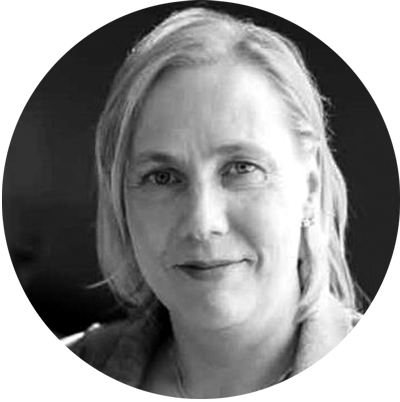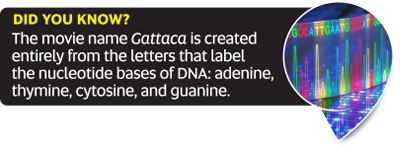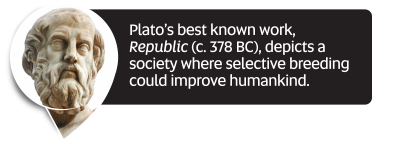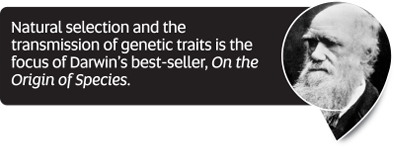Article Lead In
07 July 2022
AUTHOR: ANNABEL MANSFIELD
The origin of the human species has long intrigued scientists and philosophers alike. Now, the human blueprint is transforming the diagnosis and prevention of disease as the world enters the age of genomics.
More than 20 years ago, the sci-fi movie Gattaca highlighted a dystopian society where children were conceived through genetic selection to fortify the best hereditary traits within humanity.
While the society in Gattaca advocated eugenics to ‘improve’ generations, the desire to build a stronger and more resilient population has been discussed over millennia. From Plato’s musings on selective breeding, to Darwin’s theories of natural selection, the quest for knowledge about humankind has long fascinated both scientists and philosophers.
Fast forward to the modern day, and decoding the human blueprint is at the forefront of medical research. It was only in March 2022 that scientists completed mapping the first full and seamless human genome, finally identifying the last eight per cent of the missing code.
Curiously, this was not the first time such a discovery had been announced: in 2003, the same declaration was made when the 1990 Human Genome Project claimed they had unlocked the DNA blueprint of human life. But there were gaps – it was a case of ‘we don’t know what we don’t know’. But today’s technological advances are removing any remaining grey areas.
In Australia, genomics is considered one of the most promising emerging medical disciplines. In March this year, the Government announced $28.1 million to establish Genomics Australia, a new agency to support the integration of genomic medicine as a standard of healthcare. It’s a massive undertaking and one that could hugely benefit society.
Most work in genomics (and its related biotechnology) is focused on improving human health. This generally involves understanding how human genomes interact and respond to different environments to be able to deliver advanced medical diagnoses, personalised medicine and identify risk factors for disease. But it’s also about knowing how to prevent disease and finding cures for those already affected.

UniSA geneticist and molecular biologist specialising in genetic variations in human health Professor Leanne Dibbens, says the rate of change in genomics is astronomical.
“In the past few years, the genomics sector has been driven by massive advances in technology,” Prof Dibbens says.
“Before this, we could only look a person’s genetic variants one by one – or even only gene by gene – which would take an extraordinary amount time and cost thousands of dollars.
“Now, we have the technological capability to look at a person’s genes and their whole genome in just few days, so it’s really changed the landscape and challenged researchers to step up and interpret this information.”
Prof Dibbens, who leads the Epilepsy Genetics Research Group at UniSA and is Head of Genetics at the Australian Centre for Precision Health, says that while genomics can provide answers on one level, it opens more questions on another.
“Once we know someone’s genetic sequence and variants, we can start to explore specifics – ‘Are they at risk of this condition?’, or ‘Could they pass that mutation onto their children?’”
In some ways, it’s a case of knowledge is power. From the perspective of improving public health, providing more effective and tailored treatments, or making specific changes to avoid certain diseases, genomics can be extremely valuable. But when it predicts serious, unavoidable health issues in a person’s future, the information can be damaging.
“Some people don’t want to be sequenced; they don’t want to have a crystal ball of what their future health might look like,” Prof Dibbens says.
“We know this from many genetic diseases. For example, we’ve been able test for Huntington’s disease for more than 20 years, but many people who are at risk are adamant that they don’t want to know if they have that mutation; it makes sense, as finding out whether you carry a gene for a debilitating disease could have a devastating effect on your mental health or the way you choose to live your life.
“At the same time, knowledge of defective genes can also be extremely beneficial. I’ve known families who have children with severe epilepsy or intellectual disabilities, and when they decided to have more children, have sought out reproductive help to avoid any embryos that carry these mutations. Of course, not everyone wants to go this way, but it gives individuals and families much-needed choices that were never an option before.”
Where genomics really shines is in precision medicine, including ‘pharmacogenomics’. This tailored approach to medicine uses a person’s genetic and genomic information to improve diagnostic and therapeutic outcomes.
“Personalised medicines are a game-changer for public health, especially for people who have already been diagnosed with a health condition,” Prof Dibbens says.
“For example, some people who have genetically diagnosed epilepsy or mental health issues must avoid certain drugs because these could make their condition worse. Without understanding their biochemistry – as outlined via genomics – clinicians wouldn’t know this.
“Similarly, genomics can also reveal the reasons why people are critically ill, which is absolutely vital when we’re dealing with sick children and babies. In these instances, genomic medicine can be a lifeline as rapid genomic testing can get quick and powerful answers to what’s going wrong.
“The challenge, however, is to ensure that enough clinicians and health providers understand the benefits of genomic testing, so education in this space has become highly important.”
But it’s not only clinicians and patients that can benefit from genomics. Even the everyday person can gain something from their genetic code.
Genetic research shows that:

Director of UniSA’s Australian Centre for Precision Health, Professor Elina Hyppönen, who investigates gene variations to inform population health, says everyone has a “unique set of genes that makes us who we are”.
“But how these genes interact with the world depends on our unique genetic makeup,” Prof Hyppönen says.
“By understanding how our genes interact with the environment, we’re able to establish whether making certain lifestyle changes can ameliorate adverse influences caused by susceptibility genes; while we can’t change these genes, we can change how we interact with those environmental factors that heighten the risk of disease.
“For example, research shows that some people are more susceptible to heart disease, which can be exacerbated by drinking excess coffee; while others may have a higher risk of developing dementia.”
But if people know what they’re susceptible to, this improves early detection and enables people to make changes to their lifestyle, which can improve their prognosis or prevent disease entirely, she says.
Prof Hyppönen, an international expert in genetic epidemiology and leader of the Nutritional and Genetic Epidemiology group, says genetic data has helped show how obesity affects brain health as well as “how excess adipose tissue, especially around our waistline, can be particularly harmful”.
When it comes to the crunch, the key to genomic sequencing is the tiniest bit of DNA – all it takes is a single strand of hair, a fingernail clipping, or even a spot of saliva. So, for as little $99, you can buy a genealogy test. So, what’s the catch?
The commercial businesses that decipher genetic histories (such as Ancestry.com and Living DNA) collect DNA, but they don’t pay you for it, instead, you pay them. And, while you receive genealogical history in return, these companies get access to thousands upon thousands of genetic records to do with as they wish.


Senior lecturer in law at UniSA and human rights expert, Dr Sarah Moulds, says consumers should be more aware of their rights and what it means to hand over their DNA.
“Everyone has a right to privacy as part of their human rights, as recognised by international law, but there’s really not much law standing in the way if a corporate like Ancestry.com decides to misuse your personal information,” Dr Moulds says.
“In Australia – and particularly in South Australia – the law doesn’t always protect privacy in the way that you might think. While some government departments are required to treat your personal information – including your DNA – with great care, there are many environments where the law does little to help you if you feel like your privacy has been breached.
“To add to this, there is no individually enforceable right to privacy in Australia, meaning that you cannot sue a company like Ancestry.com for breaching your privacy.
“Plus, companies like Ancestry.com ask customers to agree to detailed terms and conditions that allow them to use your personal information in different ways. So, when you sign up to uncover your DNA, you’re essentially signing away your rights.
“As technology changes, however, and as biometric material like DNA and facial recognition images become increasingly commercialised and valued by both private and public sections, our laws will need to change to keep up.
“We can expect some big moves in this space.”
Despite accreditation and legal concerns, the growth of for-profit genealogy companies is increasing. In 2018, Ancestry.com claimed to have sold 18 million DNA kits; by 2021, this had exceeded 100 million. It’s clear that curiosity still has the upper hand.
According to futurist and the Director of MOD. at the University of South Australia, Dr Kristin Alford, people’s yearning to discover their past is just part of human nature.
“People are generally curious to discover more about their DNA,” Dr Alford says.
“Often, they speculate, imagine or retell family stories to make sense of their past. This is just part of us as human beings – people are inquisitive, we like explore and make sense of our history.
“Genetic evidence lets us delve deeper into the past, to solidify this history and perhaps provides answers about our health, culture, and identity, which might be useful for making sense of present and future conundrums.
“As technology advances, there’s an expectation that genetic profiles will become more common, and our biological histories more transparent.”
When it comes down to it, transparency and a desire for truth is at the heart of genomics. Whether pursuing precision medicines and treatments, deciphering risks for disease, or even seeking your ancestry, understanding the human blueprint and how it interacts with the environment is central to that quest.
There’s no doubt the journey is complicated. But with genomic health technologies now readily accessible, humankind may be on the precipice of a bold new world.
UniSA holds conversations about future-focused, ethical issues relating to research, technology, and our society through Ethos Forums at MOD. Ethos Forums take place four times a year to discuss the intersection of ethics and society. Visit the Ethos Forums webpage for more information.
You can republish this article for free, online or in print, under a Creative Commons licence, provided you follow our guidelines.





